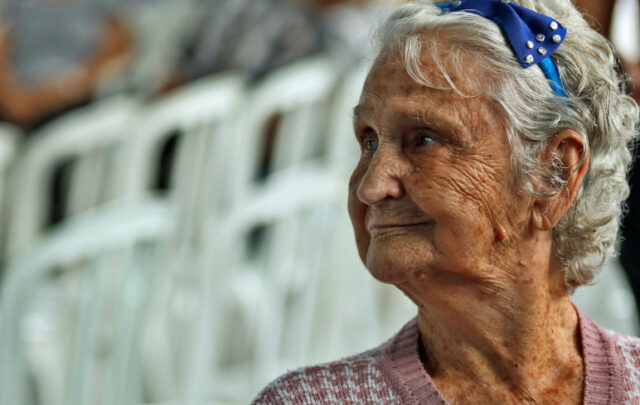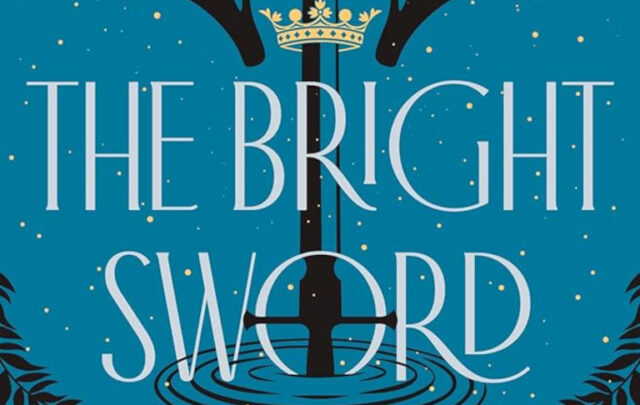NOTE: Images in this archived article have been removed.
Over the next few months, Resilience.org will feature interviews with thought leaders and practitioners, discussing how to define, practice, and evaluate community resilience. In addition, we’ve shared resources for defining resilience, thinking about resilience, and building community resilience. Please read, comment, and share.

Nikki Silvestri: My name is Nikki Silvestri and I am the CEO of Silvestri Strategies.
Ken White: How do you define community resilience?
Nikki: I define community resilience as the ability as a community to withstand change in a way that protects all people, and an ability to take advantage of change in a way that increases the ability of the community to thrive.
Ken: If you have an image in mind, what does it look like to you, how does a community know if it’s resilient?
Nikki: A community knows it’s resilient if there are social, economic, or ecological forces acting upon it, and they actually see growth in the health of the families of that community as opposed to degradation of the health of the families in the community.
Ken: That’s interesting, because a lot of people will say, “it’s the ability to bounce back,” and leave it at that.
Nikki: Yeah, that’s not my definition of resilience.
Ken: Tell me more, if you would.
Nikki: [T]here’s connotation and denotation for resilience, and the connotation of resilience is the ability to bounce back and I think that connotation has been influenced by a pretty limiting framework of returning to some, quote, “[pre-]crisis state” where everything is perfect, and there is no such thing. At least when you study cultural geography or any kind of biology, any of the sciences, will tell you there’s no crisis state in anything, things are constantly changing in a dynamic flow and there’s just inputs and outputs and there’s not a moment that you get to where things are the way they, quote, “should be.” And so, looking at resilience through that definition, resilience really is the ability for any system to live, and to thrive while living and not be in a state of crisis. So, that could be confusing, using crisis in two different ways, and “not be in a state of emergency,” I’ll say that. And so, for me resilience is more the dictionary definition of it: the ability of a community to thrive against different types of inputs and outputs that will happen to the system.
Ken: I recall in the wake of Katrina that people were talking about — in fact two different presidents I believe used similar language on this, saying, “We’re here to help you folks get back to our way of life.” And the irony, of course, is that “our way of life” wasn’t exactly working for a lot of people who were affected by Katrina. So, you get that tension between [people saying] you want to bounce back to the way it was, but whatever it was may not have been an ideal state to begin with.
Nikki: Yeah, and I think that’s why I’ve landed on my definition of resiliency with all of the work that I’ve done, because it actually allows for an objective look at a community, right? You take away politics, take away whether you think trickle-down [economics] works, take away even what you think about race. Just look at this community. Are the families healthy and thriving? No? Okay. It’s not resilient. So, how do we get it resilient? If we could just start from scratch and look everywhere, and it would equalize the playing field in a way I really like.
Ken: That’s two interesting questions then. If you’re saying, “Yes, the families are healthy and thriving,” then what are the indicators of that? And if you’re saying, “No, the families are not healthy and thriving,” then what are the interventions?
Nikki: I was raised in the old school sustainable development stuff. So the 1992 Rio definition of sustainable development, where Ecology, Economy, and Equity are all in balance, as a holy trinity. And if those three things are all thriving, if the economic situation of the family is thriving, if socially and equity wise they feel seen, heard, spiritually uplifted, etc. And ecologically they feel like they are in harmony with their environment and the Nature around them is healthy. Then that is for me the definition of resilience. It’s just the old school definition of sustainable development. And if any of those things are off, and obviously there’s more, you know? But that’s something that is tangible and we can wrap our hands around. And then I think the intervention…the interventions for me are actually pretty simple, because I feel like all roads lead back to the underpinnings of the way that we run this country. Where is this going to be? Before I get to radical, where is this going to be?
Ken: Well, we’re hoping to put it on our resilience.org website and we have fairly wide distribution. We have 1.5 million unique visitors annually and we have about 45,000-person mailing list, and 25,000 people on Facebook, and so on. And we will obviously promote to partner organizations… [If] it’s radical for our learning, then that would be really helpful.
Nikki: Okay, that works. Great. So, who I am in my real work in the world is someone that wanted to be a preacher. Because I think, in terms of who I am as Nikki, I think and believe that the spiritual crisis that humans are going through is what is actually the problem. We’ve actually acted in the exact same way since we became Homo sapiens. And we’ve just now gotten to the point where we’re familiar enough with the planet that we’re threatening our own survival. During the Middle Ages and the Dark Ages there was a 50% [greater] chance that you’d be killed by another human being. We’ve always been this way.
So, that’s what I really want to address. That’s the intervention for me when it comes to resilience. I think it’s a bit esoteric, but it’s really starting with the social side of Economy, Ecology, and Equity, starting with the Equity side. What is it inside of us as a community that wants to hurt each other and wants to extract and wants to view each other as commodities and transactions, as opposed to things that have inherent value, and deserve listening and a say? And if we create a process and space for that to thrive and exist, then I feel like the relationship with Ecology comes from that. And then I think the last step the creation of the social system and an economic system that sits on top of this very healthy spiritual foundation is the way to go. It’s not like you can just replace capitalism with socialism or communism and things are just suddenly going to work. All of our economic systems have failed because of something that’s inside of us.
That’s radical. That’s me, in full. And so I would love to see…I would love to discuss with you what we actually put out there…
Ken: First of all, it’s radical as you know, in the sense of going to the roots, which is so important. And I completely agree that the story we tell ourselves determines what we’re going to do. We can layer on top of that all this other crazy stuff about what we think we believe and what we want to believe about ourselves, and how we want to be in the world. But the story we tell ourselves is the thing that sets our feet in a particular direction. And we have an old story, and [in some ways] it’s been a helpful story, but it’s not [likely to be] a helpful story going forward. And it’s really scary for us to contemplate a different story, because we don’t know how to live it.
So, given a radical, a roots analysis, how does that animate the work you’re doing now?
Nikki: I wanted to just take a chance and look at the field a bit more, and considering my personal beliefs, where interventions coming from me would be most helpful. I actually think interventions all along the spectrum are incredibly helpful, right? But the key for me is that we each have to know what we do best, and then do that.
So, the work that I’m doing now is actually looking at systems: food systems, climate systems, social systems in particular. And trying to understand what it is that encourages people to look at things in the binary vs. staying in the system. Because we just get stuck in either/or. And that is so limiting. That’s why solutions tend to hurt sometimes more than they can help because we aren’t looking at the entire system. So I’m trying to figure out how I can encourage people to look at the entire system and how to support that in the food world and the climate world and the racial justice world.
Ken: You know, you’re the second person I’ve spoken with in the last two days who expressed a desire to get more people to appreciate the systems viewpoint. How are you thinking about making that possible?
Nikki: Well there’s a two-pronged strategy. There’s the personal, and then there’s the professional. And on the personal side, I am in a partnership with an organization called 10th Dot, a consulting firm that intermixes yogic traditions with personal and organizational development tools. I want to support individuals and organizations and businesses, with understanding their own perspective around systems thinking, and to refine their ability to approach themselves and their works from the systems point-of-view, through coaching and facilitation. And then on the professional side, actual demonstration projects, from doing some work in soil carbon, which, from a systems point of view, holistic land management actually gets to water and carbon sequestration and connecting ethnic people back to the earth in a way that will actually decrease our insanity with each other living in the ‘hood. Just everything, right, holistically managed.
And then, a truth-telling project. Looking at bringing transitional justice work, in terms of bringing truth commissions internationally into the United States. There’s other organizations that are doing that and I’m specifically thinking about it as it applies to #BlackLivesMatter.
Ken: You bring up the word transition. We work with Transition US, and we also work with our friends at Climate Justice Alliance and Movement Generation and others around the idea of a “just transition.” You bring up another way of using the word “transition,” could you say more?
Nikki: Yeah, the field of transitional justice specifically in regards to countries that have seen a change away from a destructive, killing-their-own-people regime, usually. And before the new government can be put in place, there’s a need for a collective accounting, and a history that is understood and shared by all.
Ken: Tell me more. You explained the origins of it, and I’m thinking of the South African Truth and Reconciliation Commission is probably the best-known example. How are you thinking that may be applicable in the US, [for example] in the context of #BlackLivesMatter?
Nikki: I think it could absolutely be applicable in the US. And the first truth commission that happened in the US is in North Carolina, in Greensboro. We actually went through the full process, which was fascinating. Another North America example is the Canada Commission, which just happened with aboriginal people. It was really in depth, and really beautiful.
And the point of transitional justice work in truth commissions is actually to address reparations, and to see what would be needed for everyone to walk away into the new future, in a way that they feel held and acknowledged, even if they don’t get everything they want. [W]e definitely need some of that. I don’t exactly know what it would look like; we’re still in the research phase right now.
Ken: One of the things we come across in the work [of] supporting community resilience is the familiar lament that it’s largely a white, upper middle class, people with leisure time. [It’s] both a lament and a “pointing out the obvious” critique. I’m wondering if part of why you’re talking about this is because there is a disconnect? Because if we haven’t dealt with how we got here, then it’s going to be hard to deal with where we want to get to next?
Nikki: That’s exactly right, and that’s actually one of the tenets of transitional justice is that a new government will tear itself apart, if there has been such intense atrocities that happened in the previous regime that haven’t been accounted for. And we are in that situation right now. [T]here’s a couple of things that need to be in place for a truth commission to even be possible, one of which is an actual regime change, and we haven’t had that. That’s why it’s going to be interesting to figure out how to do some transitional justice work in a situation where there’s been no exclusive acknowledgement that we need anything new.
Ken: One of the questions for the formal interview hones in on this really precisely: “From your perspective, what is the relationship between community resilience and justice?”
Nikki: I think when we look at the communities that are not resilient there are multiple justice-related issues as to why that is.
Ken: Can I just probe that for a second, because, your earlier definition talked about healthiness of families and so on, and [particularly] relationships. I’m thinking about, for example, some of the suburbs we have, where completely disconnected people pass each other by car, and although they have a lot of the markers of health in terms of nutrition and economic well-being, they’re not resilient either. And I’m just wondering how that plays into it, if you think about the different kind of communities there are and the different ways they aren’t resilient.
Nikki: That’s also why I like looking at a community objectively, and just saying Economy, Ecology, Equity. Are all three of these pieces thriving? I actually feel like the Equity piece is where everybody fails. Everyone, in America is failing the Equity piece. We’re unhappy. We turn on ourselves. We turn all of that animosity inward, and we divorce, and don’t like our kids, and we’re just screwed.
Ken: The term we like to use for it is the “Walking Worried,” which kind of encompasses just about everybody in this country. We all sense that something is not right, but the difficulty is trying to identify exactly what it is, because we have such a powerful cultural narrative that tells us everything’s okay, and we’re doing the right thing.
Nikki: Exactly.
Ken: Do you have a framework that you use, or are there other frameworks that you reference that [you find] helpful?
Nikki: I actually talk about Movement Generation all the time. I think that what they’ve done around community resilience is the most sophisticated and clear that I’ve seen.
Ken: Are there any other resources or any other people or books or ideas or frameworks or whatever?
Nikki: Yeah, there’s a book on transitional justice, Unspeakable Truths: Transitional Justice and the Challenge of Truth Commissions, by Priscilla B. Hayner. It’s an excellent book that details the 40 or so truth commissions that have happened all over the world, and the strengths and the challenges of them.
Ken: Thank you.







